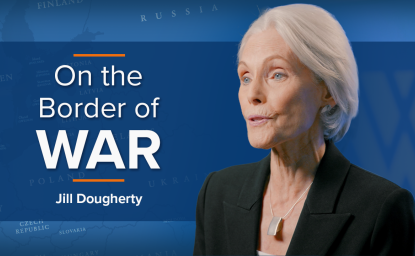Scholar Looks at Russia's Health Care Woes
Wilson Center Senior Scholar Alexandra Vacroux is writing a book about flaws in Russia's health care system and what failed reforms in this sector reveal about the Russian state.
Wilson Center Senior Scholar Alexandra Vacroux is writing a book about flaws in Russia's health care system and what failed reforms in this sector reveal about the Russian state.
"In Russia, the state has always promised free health care, so many people don't take individual responsibility for their health," said Wilson Center Senior Scholar Alexandra Vacroux. She is writing a book on the evolution of Russia's health care system over the last two decades and what failed reforms in this sector reveal about the Russian state.
Russia's health care system was designed to combat epidemics, a task which requires big hospitals and many doctors. When the main threat shifted to chronic diseases, such as cardiovascular disease, the Russian system did not adapt well, said Vacroux. Extensive, and often underfunded, infrastructure remains in place, but there is little emphasis on preventive care and education about healthy lifestyle choices such as exercise, a low-fat diet, and not smoking.
The limited reforms that have taken place, she said, have been superimposed on the Soviet-era system. The existing incentives for doctors and hospitals encourage expensive in-patient care, but fiscal resources are still very limited.
President Putin did pour money into certain pressing problems, including replacing thousands of ambulances and equipping hospitals with diagnostic equipment like ultrasound machines. "But such stop-gap measures do not tackle the underlying systemic problems," said Vacroux, "and it's unclear if President Medvedev will have the power and desire to undertake potentially unpopular reforms."
Regional governments had more autonomy over health care policy in the 1990s under Boris Yeltsin, who encouraged the spontaneous decentralization of government expenditures and responsibilities. Each of the 89 regions cobbled together their own health care system, unable to rely on an emasculated federal Ministry of Health for support.
"Putin came to power in 2000, a couple of years after the devastating financial crisis of 1998, and rode the wave of greater federal involvement in regional policy," said Vacroux. Government was gradually recentralized.
But increasing federal control over regional policy has its problems. For one, "Ministry of Health officials are not that familiar with what is happening on the ground. Moreover, there is increasing disparity in the quality of health care systems across the regions," said Vacroux, "and no effective system to equalize [them]." In addition, while corruption can happen at the federal or local level, Vacroux said that centralized contracts are much larger and offer greater opportunities for fiscal mismanagement.
Russia has considered some Western models, such as health insurance, but the public system is uneven and private medical insurance and practices have yet to flourish. Citizens now pay about 30 – 40 percent of health care costs out of pocket, though the Constitution still promises free health care.
The Russian government has invested in combating infant mortality and improving maternal health with some measure of success, but the country still faces a daunting decline in its population every year.
Russia would have to make serious changes to its institutions and infrastructure before it can provide better health care. "There have been important changes in the past 15 years," said Vacroux, "but the way the state works today is much the way it operated before the Soviet Union disappeared."


